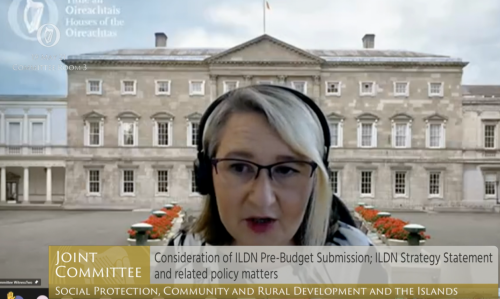
Adeline O’Brien, Chair of the Irish Local Development Network (ILDN) Social Inclusion Committee, representing Ireland’s 49 Local Development Companies (LDCs) today (Wednesday) called for increased supports under the Social Inclusion Community Activation Programme (SICAP) to help bridge the digital divide.
Speaking at a meeting of the Joint Oireachtas Committee for Social Protection, Community & Rural Development & the Islands, Ms O’Brien said; “the SICAP budget stands at 50% of what it was in 2008 – (€43m currently, €84.7m in 2008).
“Those who are already disadvantaged are likely to be more so in onsets of crises in health, economy, education and employment such as with Covid19. This is exacerbated by poorer access to information technology, digital/ online services. As we move into the recovery phase, digitization and the remote delivery of services will be become more normal across society, thus causing further disadvantage to groups with poor access to and experience of digital channels.
“To protect vulnerable groups, typically SICAP target groups, ILDN proposes a Digital Inclusion Fund (DIF) to be administered by Local Development Companies in conjunction with SICAP.
“Whilst specific funding is required, the DIF will benefit from existing integrated services and facilities with LDCs. Further investment in SICAP is also important in the context of the implementation of the Government’s White Paper on ending Direct Provision.”
The Social Inclusion and Community Activation Programme (SICAP), delivered by ILDN member Local Development Companies (LDCs), provides funding to tackle poverty and social exclusion through local engagement and partnerships between disadvantaged individuals, community organisations and public sector agencies. SICAP addresses high and persistent levels of deprivation through targeted and innovative, locally-led approaches. It supports disadvantaged communities and individuals including unemployed people, people living in deprived areas, people with disabilities, single parent families, people on a low income, members of the Traveller and Roma community and other disadvantaged groups.


